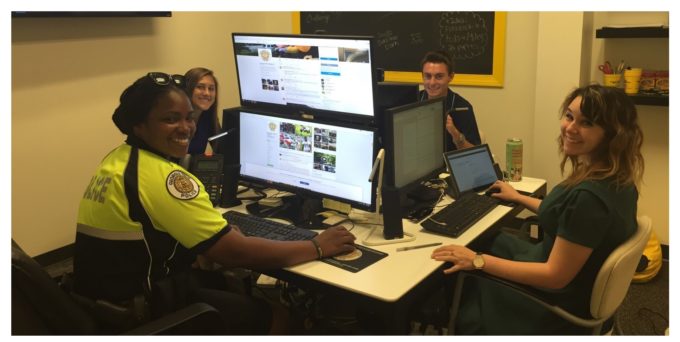5 Tips for Mixing Social Media and the Press
 Social Media offers good opportunities for your department to get information out to the public and tell it’s own story without the help of the media. But sometimes the story could use a bit more audience reach in a short period of time to achieve your goal. This means getting your story to the press. Here are some tips for getting the press to cover your stories when you need them to using both social media and a bit of your own personal charm.
Social Media offers good opportunities for your department to get information out to the public and tell it’s own story without the help of the media. But sometimes the story could use a bit more audience reach in a short period of time to achieve your goal. This means getting your story to the press. Here are some tips for getting the press to cover your stories when you need them to using both social media and a bit of your own personal charm.
1. Make Friends.
Get to know the reporters covering police topics in your area. Meet with them in person and develop a good rapport. If they know you and have a friendly relationship with you, they are more likely to help you in a pinch. Make sure to follow and be-friend local reporters, media outlets and assignment desks on Twitter and Facebook. Sometimes a media outlet needs a last minute story and they may post and ask for an idea or check on Twitter or Facebook for interesting news to cover.
2. Go Old School When You Need To.
Although it’s been a growing trend for police departments at least in my area to communicate with reporters mostly via email regarding details of an event, keep in mind that a phone call can go a long way towards getting your story covered correctly and favorably. This is mostly because it’s easier for a reporter to ask a stream of questions, get answers directly back, and clarify details with you in a live conversation.
3. Give ‘Em a Shout.
If a reporter or media outlet gives you a hand with a story, give them a shout out and thank them on Facebook and Twitter. On the other hand, if a reporter or media outlet posts a negative story, skip the urge to call them out in public. Mistakes or rogue journalism is much better handled professionally and in private. Remember, what’s posted on the Internet stays out there a loooooooooong time.
4. 10-7 at 101.
When posting about topics on Twitter or Facebook use a conversational tone. Use of police jargon is easy to fall into, but you’ll get much more response from the public and the media regarding a story if you use plain old English. Not to mention, you’ll get fewer phone calls from the press asking you to clarify what you meant.
5. Time Is Not Always On Your Side.
Release your information in a timely manner. If you want the press to cover a story, even if it’s good news, get that information out there via a tweet, a post, an emailed press release, or phone call to your local reporter. Old news is not news at all and the older a story is, the less chance the media will cover it.


